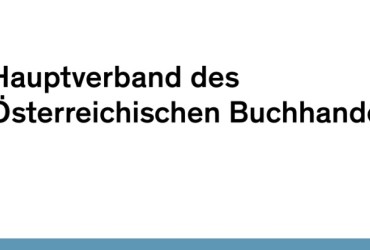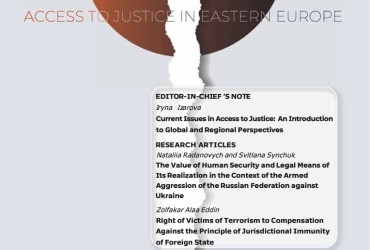Gateways provide portals for regular publications from scholarly societies, institutions and science communities, as well as for particular individuals who are studying the relevant issues. Published materials within specific gateways materials are collected together due to related research outputs, enabling thematic research, conference outputs and community projects.
Now we are announcing a call for materials related to our new gateway Access to Justice Amid War, responsible editors Dr. Oksana Uhrynovska and Prof. Yurii Prytyka.
We are seeking for the current notes, generalisation of case law, results of interview and overview of law reform in the period of war in Ukraine.
We greatly welcome contributions related to justice development from ex-war territories.
Our first articles
'ENFORCEMENT PROCEEDINGS AMID MILITARY AGGRESSION IN UKRAINE: CURRENT CHALLENGES'
Oksana Uhrynovska and Nataliia Slyvar
In this note, the peculiarities of the implementation of decisions of courts or other jurisdictions during the military aggression against Ukraine were studied. The note also reveals the main causes of problematic situations in the implementation of enforcement proceedings under martial law and proposes comprehensive solutions based on law enforcement practice and specific changes to current legislation.
Particular attention was paid to the legal regulation of enforcement proceedings in the occupied Ukrainian territories during 2014-2022.
The conclusion discusses the contradiction of unresolved issues in the theory and practice of legislation in implementing enforcement proceedings during the period of martial law as a result of significant updating and reforms.
A CRIMINAL AND LEGAL ASSESSMENT OF COLLABORATIONISM: A CHANGE OF VIEWS IN CONNECTION WITH RUSSIA’S MILITARY AGGRESSION AGAINST UKRAINE
Natalia Antonyuk
The dynamics of amendments to the Criminal Code of Ukraine after the start of the war show that the criminal law was not sufficiently ready for application during the war. First of all, a number of acts that are socially dangerous have not been singled out as criminal acts. Some existing articles needed to be amended to differentiate criminal liability.
It is possible to state that collaboration activities have a high level of public danger and should therefore be criminalised. The severity of punishment for such actions depends on the type of collaborationism. Scholars and law enforcers in countries analysing Ukraine’s experience and changes in criminal law in connection with the war should clearly delineate the criminal range of acts of treason and analyse whether there are any socially dangerous acts that are obviously harmful to national security but remain outside of the notion of treason.
‘TERRITORIAL TORT EXCEPTION? THE UKRAINIAN SUPREME COURT HELD THAT THE RUSSIAN FEDERATION COULD NOT PLEAD IMMUNITY WITH REGARD TO TORT CLAIMS BROUGHT BY THE VICTIMS OF THE RUSSIA-UKRAINE WAR’
Bohdan Karnaukh
This note addresses the ruling of the Ukrainian Supreme Court of 14 April 2022 in case no. 308/9708/19, where the Court held that the Russian Federation could not plead immunity with regard to tort claims brought by the victims of the Russia-Ukraine war. In reaching this conclusion, the Court relied on the territorial tort exception enshrined in the European Convention on State Immunity (Basel, 16 May 1972) and the UN Convention on Jurisdictional Immunities of States and Their Property. Though neither of the two conventions has been ratified by either Ukraine or the Russian Federation, the Court found that these conventions indicate a general tendency in international customary law towards limiting the jurisdictional immunity of the states.
‘THE LEGALITY OF THE RUSSIAN MILITARY OPERATIONS AGAINST UKRAINE FROM THE PERSPECTIVE OF INTERNATIONAL LAW’
Maya Khater
This study seeks to discuss the grounds used by the Russian authorities to legalise their war against Ukraine, indicating the falseness of these grounds and considering the efforts of the United Nations and the International Community that aim to cease Russian aggression against Ukraine. It aims to demonstrate the falseness of Russian legality in its war against Ukraine by identifying the violations and crimes related to the Russian attack under international laws and norms, including the Charter of the United Nations, rules of international humanitarian law, and international human rights law, emphasising on the potential accountability mechanism for perpetrators of international crimes during the Russian war against Ukraine.
Russia has used military force against Ukraine several times since 2014 and seized several Ukrainian critical and strategic locations, including them in the Russian territory, coinciding with escalating protests by Pro-Russian separatist groups, especially in Donetsk and Luhansk, where these groups declared their independence in February 2022. Furthermore, Russia has declared it started a special military operation aiming at peacekeeping in those two regions, in addition to claiming that its intent was to stop genocide crimes undertaken by Ukraine in the eastern region of Donbas. This research concentrated on the legality of the latest Russian military operations that started on 24 February 2022 from the perspective of contemporary international law.
MILITARY JUSTICE IN UKRAINE: RENAISSANCE DURING WARTIME
Oksana Kaplina, Serhii Kravtsov, Olena Leyba
In this article, the authors raise issues that are relevant for the modern legal system of Ukraine, related to the need to revive the military justice system and, in particular, military courts. The authors emphasize that during the peaceful existence of Ukraine, a dangerous illusion was formed in the society regarding the unnecessary functioning of military justice in the state, however, unforeseen realities fundamentally changed the liberal ideas of peacetime.
LIABILITY MECHANISMS FOR WAR CRIMES COMMITTED AS A RESULT OF RUSSIA’S INVASION OF UKRAINE IN FEBRUARY 2022: TYPES, CHRONICLE OF THE FIRST STEPS, AND PROBLEMS
Oksana Kaluzhna and Kateryna Shunevych
The researchers outline the range of war crimes and note the lack of systematisation due to the non-ratification of the Rome Statute by Ukraine, which significantly complicates the qualification of crimes for practicing lawyers. The authors then analyse such mechanisms of bringing the military, officers, and officials of russia to justice as: а) the International Criminal Court (ICC), b) ad hoc tribunals, с) the European Court of Human Rights (ECtHR), d) national judicial systems on the principle of universal jurisdiction e) criminal proceedings of Ukraine, f) eclectic forms of cooperation of justice bodies of Ukraine with foreign and international partners, together with the chronology of the first steps for each.
APPLICATION OF ADMINISTRATIVE JUDICIAL MECHANISMS IN THE FIGHT AGAINST INTERNAL THREATS TO NATIONAL SECURITY IN CONDITIONS OF RUSSIAN-UKRAINIAN WAR
Oleh Ilnytskyy
Judicial control and authorization of state coercion or other interference in the sphere of private legal interest is a universal standard for building a political and legal system based on the principles of the rule of law. To obtain reliable and substantiated conclusions, general and special research methods were used, which processed the results of theoretical research on the problems of administrative proceedings in Ukraine, materials of legal practice in the form of conclusions of international human rights institutions and Ukrainian courts.
TRANSFORMATION OF BAR IN WARTIME IN UKRAINE: ON THE WAY TO SUSTAINABLE DEVELOPMENT OF JUSTICE (ON THE EXAMPLE OF THE ODESA REGION)
Oksana Khotynska-Nor and Nana Bakaianova
This article presents the analysis of the peculiarities of functioning of the Bar of Ukraine in wartime on the example of the Odesa region. Its choice is due to the history and ancient traditions of Odesa Bar, whose representatives have already experienced periods of military aggression, and the available information about the results of its activity in wartime in the modern period. In wartime, it is impossible to obtain and systematize such data regarding the whole territory of Ukraine because part of the state is under occupation, and active hostilities are taking place on the other part.
LEGAL CHALLENGES FOR UKRAINE UNDER MARTIAL LAW: PROTECTION OF CIVIL, PROPERTY AND LABOUR RIGHTS, RIGHT TO A FAIR TRIAL, AND ENFORCEMENT OF DECISIONS
Yuriy Prytyka, Iryna Izarova, Liubov Maliarchuk, Olena Terekh
This study is designed to analyse the consequences of armed aggression against Ukraine and the introduction of the appropriate legal regime in such areas as the realisation of property rights, the administration of justice, the enforcement of court decisions, and labour relations.
ADMINISTRATION OF JUSTICE DURING MILITARY AGGRESSION AGAINST UKRAINE: THE ‘JUDICIAL FRONT’
Oksana Uhrynovska and Anastasiia Vitskar
This article is devoted to the study of the peculiarities of the administration of justice in the context of the large-scale military aggression of the Russian Federation against Ukraine. Within this framework, the authors carried out a detailed analysis of the recommendations on the work of courts in martial law provided by the Council of Judges of Ukraine and the Chairman of the Supreme Court. Taking into account the recommendations adopted during the conditions of martial law and the current jurisprudence formed at that time, the peculiarities of civil proceedings in martial law were singled out and analysed in detail, focusing on a specific procedural institution.
Editor-in-Chief’s Note
ABOUT THE SPECIAL ISSUE ON ACCESS TO JUSTICE IN UKRAINE AMID WAR
Iryna Izarova
In this issue, we have collected articles and notes written by authors on various topics related to the war in Ukraine.
Among the research articles, we have a few contributions on the most requested issues. Our authors studied topical questions and tried to find solutions where they found a lack of proper regulations, gaps, and insufficient information on the reality of the war in Ukraine, using the experience of other war conflicts, modern doctrines, and approaches to argue for their conclusions and recommendations.
I would like to express my endless thank to my colleagues, scholars from Ukraine who are working amid the war on topics that are important for all – for the protection of human rights and to develop Ukrainian law and mechanisms for its implementation. I thank all our international authors for their valuable contributions to this discussion.
I truly believe that all the conclusions will be useful for further reforms and the main goal – to help prevent war and minimise losses in ongoing conflicts.
Enjoy reading and we welcome you to comment and review!
PRISONERS OF WAR: SPECIAL STATUS IN THE CRIMINAL PROCEEDINGS OF UKRAINE AND THE RIGHT TO EXCHANGE
Oksana Kaplina
This article is devoted to the relevant issue of the creation of appropriate normative regulation of criminal prosecution of prisoners of war who were captured during the armed conflict in Ukraine and their exchange.
Using the example of the first sentence in Ukraine to a Russian prisoner of war and relying on the norms of international humanitarian and national law, the author illustrate the specifics of the criminal liability of combatants. Evaluating the procedure of exchange of prisoners of war and criminal proceedings in absentia which were positively introduced in the legislation of Ukraine, it was concluded that the exchange is not an act of forgiveness, but an opportunity to return Ukrainian citizens, which is of the utmost importance in the hierarchy of values for the state.
RUSSIA’S INVASION OF UKRAINE AND THE DOCTRINE OF MALIGN LEGAL OPERATIONS
Brad Fisher
This article asserts that Russian MALOPs provided a near-certain indication of attack in the months leading up to Russia’s total invasion of Ukraine. Furthermore, this research suggests that MALOPs are a principal tool for revisionist states like the Russian Federation and the People’s Republic of China to pursue legal asymmetries in pursuit of geopolitical objectives. Finally, this research recommends a novel approach for responding to this behaviour in the form of the Counter-MALOPs Toolkit: Identify; Disrupt; and Defend.
EVIDENCE IN THE INTERNATIONAL CRIMINAL COURT – THE ROLE OF FORENSIC EXPERTS: THE UKRAINIAN CONTEXT
Oksana Kaluzhna and Kateryna Shunevych
Ukraine faced unprecedented challenges for to the national justice system and the possibility of using international justice to bring the Russian Federation military, officers,and officials to justice after the full-scale invasion of Ukraine by the Russian Federation on 24 February 24, 2022. Since In March 2022, the ICC Prosecutor has started an investigation of into war crimes in Ukraine. In addition, joint investigative groups are carrying out activities. Cooperation between pre-trial investigation bodies of Ukraine through the Prosecutor General of Ukraine with and the International Criminal Court has been established. Therefore, the research of into possible problems in the criminal procedure of prosecution for war crimes is one of the priority areas for Ukrainian law enforcement practice and legal science.
PROTECTION OF THE RIGHT TO HEALTH DURING THE PERIOD OF ARMED CONFLICT: THE EXPERIENCE OF UKRAINE
Tetiana Mykhailichenko, Yuliia Zabuha, Viktoria Babanina and Mykola Syiploki
This article deals with the protection of the right of the civilian population and medical workers to health. The issue of rights violations arises in connection with the armed conflict between the Russian Federation and Ukraine, which has been ongoing since 2014. On 24 February 2022, its second phase began, which has been characterised by a large-scale offensive by the Russian army. The hostilities are still ongoing, and some areas are temporarily occupied. The aim of the present paper is to reveal the essence of the main international legal, and national means of protecting the right to health in a period of armed conflict.
Mohamad Albakjaji
There is no war without catastrophic impacts, not only on humans and states but also on the environment and nature. As with all wars, the question is raised as to whether an invasion or aggression is legitimate according to international law. This research aims to discuss an emerging issue at the international level, which is the responsibility of the aggressor state for the environmental damages incurred by the victim state. This paper discusses the possibility of establishing Russia’s responsibility for the environmental damages incurred in Ukraine. It will also shed light on the possible ways Ukraine may raise Russia’s responsibility, internationally speaking.
Maya Khater
Sexual violence is a significant issue that violates human rights and is a source of increasing concern for women during international and local armed conflicts. It has widespread impacts on civilian communities and on women in particular, with grave and long-lasting health, psychological, and social impacts. The scarcity of judicial trials and prosecutions against perpetrators of this violence is considered to be a driving force behind these crimes.
UNAMENDABLE PROVISIONS OF THE CONSTITUTION AND THE TERRITORIAL INTEGRITY OF UKRAINE
Hryhorii Berchenko, Tetiana Slinko and Oleh Horai
The paper analysed the legal consequences of violation of territorial integrity, concluding that military aggression, occupation and unacknowledged annexation of part of Ukrainian territory by Russia is not a reason to refuse territorial integrity as an unamendable provision of the Constitution of Ukraine. On the contrary, the protection of this provision should be strengthened.
Oksana Uhrynovska and Yurii Onyskiv
The armed aggression against Ukraine has been started in 2014 when Crimea and part of Ukrainian territory were occupied. It led to the disappearance of number of people and the new notion of missing persons amid military conflict appeared in the legislation of Ukraine. This study aimed to discover the gaps that prevent the full protection of the rights of missing persons and to optimize the activities of the authorities to protect this category of persons, based on the national legislation and case law.
Oleh Yaroshenko and Olena Lutsenko



